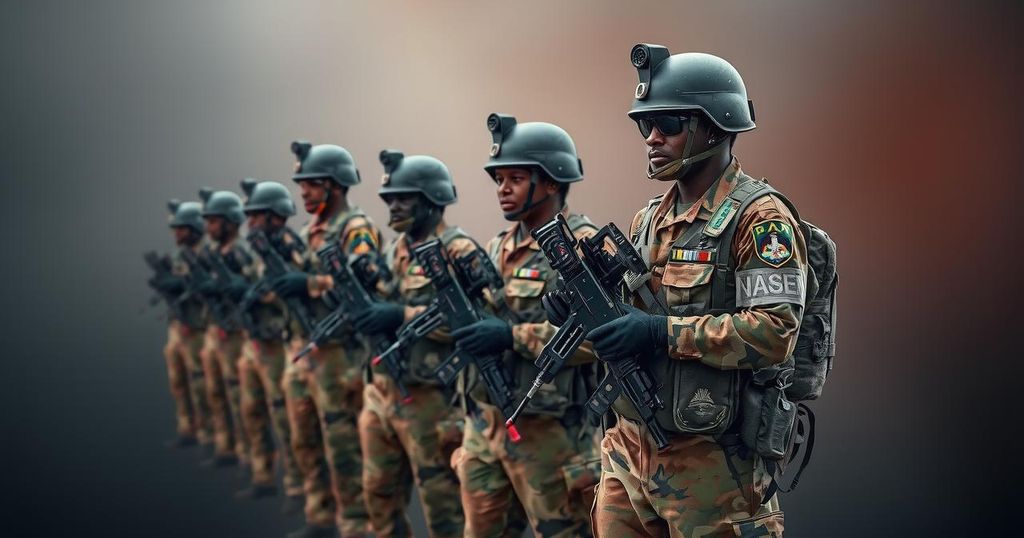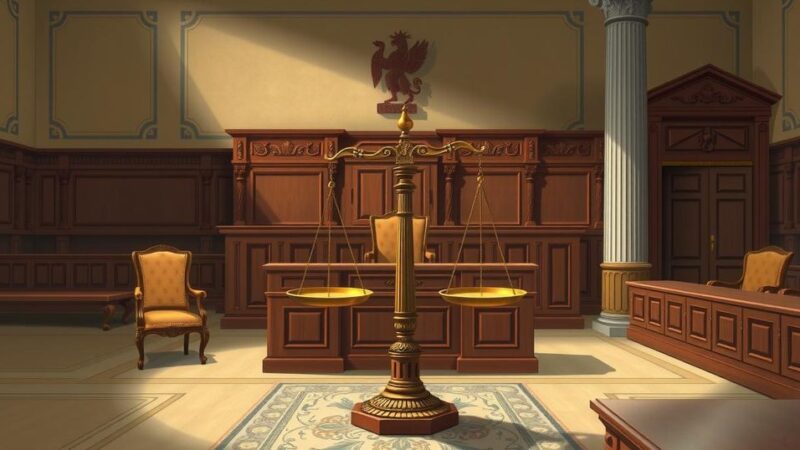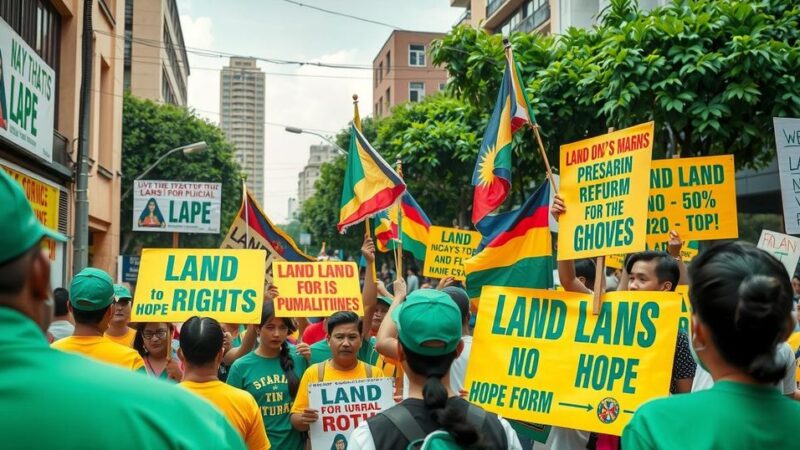Mozambique has deployed military forces to quell protests against alleged electoral fraud following the October 9 elections. The ruling Frelimo party’s continued dominance has sparked considerable unrest, leading to clashes between protesters and police, resulting in fatalities. The situation remains tense as opposition figures express distrust in the electoral process, while neighboring countries heighten security measures amidst the crisis.
Mozambique is currently facing significant unrest as the government has dispatched military personnel to assist the police in managing escalating protests against the perceived electoral fraud associated with the ruling Frelimo party. Following the October 9 elections, where Frelimo’s candidate was declared the winner, opposition parties have raised serious allegations of ballot box tampering. The response from security forces has included police crackdowns resulting in fatalities among demonstrators, leading to increased tensions and fears among citizens, many of whom are now remaining indoors. The situation has been exacerbated by violence against opposition leaders, further fueling public outrage. Major demonstrations have taken place in the capital, Maputo, accompanied by road blockades and fires set by protesters, seeking to express their dissent against the election results. The Constitutional Council has yet to validate the election results, casting doubt on the legitimacy of the ongoing political scenario. Additionally, regional neighbors are becoming increasingly concerned, as illustrated by the closure of border crossings by South Africa seeking to manage the potential fallout from Mozambique’s political turmoil.
The unrest in Mozambique follows the October 9 elections that were marred by allegations of corruption and electoral malpractice by the ruling Frelimo party, which has maintained political control since the country gained independence from Portugal in 1975. Despite being announced as the election victor, the validity of Daniel Chapo’s presidential victory remains unconfirmed pending approval from the Constitution Council. Historical patterns of governmental manipulation in election processes have generated deep mistrust among the populace, prompting protests that have led to violent confrontations with law enforcement agencies. The involvement of military forces suggests a significant escalation in responses to maintain order and quell dissent, as civil rights organizations document increasing casualties among protesters and opposition figures.
In summary, Mozambique is in a state of heightened tension following the controversial elections that saw the ruling Frelimo party reaffirm its power amid widespread dissent from opposition groups. With the army’s deployment in response to protests, the government faces significant challenges in restoring order while addressing mounting public discontent related to electoral integrity. The events unfolding in Mozambique warrant close attention from both national and international observers, especially given the potential implications for regional stability in southern Africa.
Original Source: apnews.com






